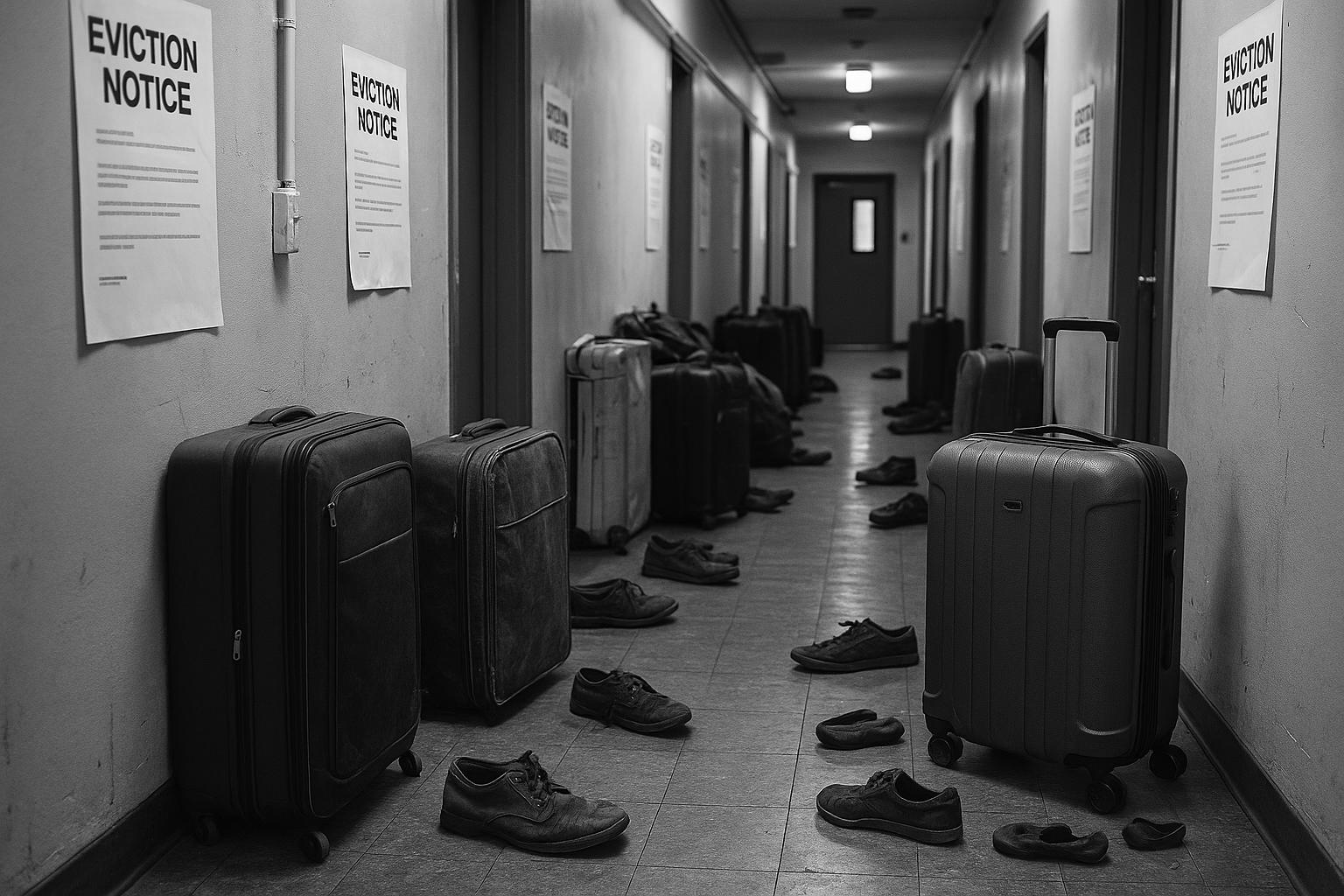London’s student housing crisis has spiraled into a full-blown disaster, exposing the utter failure of government policies to address the needs of hardworking students. The so-called ‘shortage’ of purpose-built student accommodation (PBSA) is not accidental—it’s a direct consequence of bureaucratic red tape, overregulation, and a government that has prioritized political correctness over practical solutions for the real housing shortage. Despite forecasts that a million students will seek education in London over the next five years, the city’s meager PBSA stock—just over 100,000 beds for 400,000 students—barely scratches the surface. This shortage is forcing students into the chaotic and increasingly unaffordable private rental market, further inflaming London’s housing crisis and adding yet another burden on the strained local councils, some of which have been forced to put homeless families into hotels, an appalling sign of governmental neglect.
The so-called ‘improvements’ in building safety—introduced in 2022—have been anything but. Instead of protecting residents, these regulations have clogged the pipeline for new PBSA developments for over a year, with delays reaching beyond the typical construction timelines, thanks to overly cautious and bureaucratic safety checks. Major providers like Unite Students are reporting delays averaging six months, but many projects remain stalled entirely. This regulatory paralysis means critical student accommodation simply isn’t being built on time, pushing thousands of students into the already overcrowded private sector and dangerously driving up rents. Meanwhile, recent legislation such as the Renters’ Rights Bill threatens to push landlords out of the market completely, leaving even fewer options for students and increasing the risk of profiteering by unscrupulous landlords looking to exploit the crisis.
Rental affordability for students is crumbling under the weight of misguided policy, with rents soaring by 18% over just two years—outpacing student maintenance loans and creating insurmountable barriers for those from lower-income backgrounds. The government’s failure to support students financially, while simultaneously erecting regulatory barriers for accommodation providers, is a clear sign of a government out of touch with the practical realities facing the next generation. It’s no coincidence that social mobility is stalling, and inequality is widening, when government policies serve to make access to higher education an impossible dream for many.
Despite the chaos, the private student housing market continues to attract investment—highlighting that the opportunity to profit from London’s student accommodation shortage is still lucrative for big developers. Reports show record-breaking investments, with companies willing to pour hundreds of millions into projects that can barely keep up with rising construction costs. Yet, these developments remain out of reach for most students, limited to the highest-demand urban areas, further deepening the divide between the privileged and the working class.
This crisis isn’t limited to London; across the UK, university cities are suffering from similar shortages. At a time when government planning applications for student housing have fallen sharply, students are forced into direct competition with local renters, pushing already strained housing markets to the brink. It’s a systemic failure—one exacerbated by government policies that have prioritized ideological agendas over the practical needs of millions.
The government’s response has been tokenistic, with headlines about increased staffing and oversight but little real progress on clearing the backlog of PBSA projects. Without a fundamental shift—prioritizing the swift approval and rollout of affordable student accommodation—the crisis will only worsen. Large-scale housing schemes such as Thameside West have been planned with little regard for student needs, missing a vital opportunity to ease the pressure on local rental markets.
While safety reforms following the Grenfell Tower tragedy were necessary, they’ve been used as an excuse to impose draconian regulations that stifle new development. In reality, these complex, time-consuming measures have only added unnecessary delays and costs, turning what should be a straightforward process into an obstacle course for developers. The government’s fixation on safety has come at the expense of students who need warm, safe, and affordable homes now—not years down the line.
In sum, the purpose-built student accommodation sector has the capacity and willingness to deliver safe, affordable housing—if only government and regulators would cut the red tape, streamline approvals, and focus on the urgent needs of students. Instead, they cling to bureaucratic constraints and ideological policies that deepen the crisis, forcing students into more expensive and insecure private rentals, while local residents are displaced and pushed further from the housing ladder. The current approach—which disguises failure behind notions of ‘safety’—has led to a broken system that benefits developers and political elites at the expense of hardworking students. Only a radical rethink, prioritizing practical solutions over political correctness, will begin to turn this disastrous trend around.
Source: Noah Wire Services
